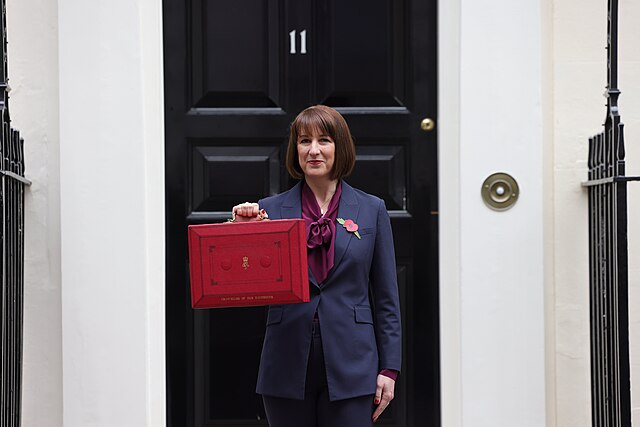And, the Scottish Government is considering introducing different landfill tax rates for stabilised materials and incinerator bottom ash, because non-stabilised organic material is to be banned from landfill in the country from 2021.

The proposals came in a consultation entitled A Landfill Tax for Scotland which was launched by Scottish Finance Secretary John Swinney yesterday (October 25). The consultation outlines the governments plans for introducing a separate system for landfill tax from April 2015.
The proposals include: establishing a replacement to the Landfill Tax Communities Fund which would increase the funding given to communities; changes to the tax point for materials; and, introducing a centrally assessed tax system, rather than a self-assessed one. The Government is also proposing that the Scottish Environment Protection Agency (SEPA) would administer the tax on behalf of Revenue Scotland.
Scotland was handed control of its own landfill tax levels by the coalition government under the Scotland Act 2012, which means that from April 2015 the Scottish Government will have the power to introduce and manage taxes for the disposal of waste going to landfill (see letsrecycle.com story).
Mr Swinney said the Scottish Government plans to fully use these powers to ensure Scottish values and circumstances are reflected. Launching the landfill tax consultation, he said: I believe that the transfer of responsibility for Landfill Tax alongside the other new tax powers in the Scotland Act (2012) to the Scottish Parliament is a first and significant step towards establishing the principle that taxes paid in Scotland are best managed and set by those with Scotland’s interests in mind.
He added: One opportunity now open to Scotland would be to increase the amount that is invested in the Communities Fund to improve surroundings and mitigate against the impact landfill has on communities.
The Scottish Government’s proposals include:
- The introduction of new differential rates for stabilised materials or combustion residues;
- Establishing a replacement to the Landfill Tax Communities Fund;
- The modification of the list of materials qualifying for the lower rate of tax;
- Closely aligning landfill tax with environmental permitting;
- Changing the tax point for materials entering landfill sites; and,
- Moving towards a non-self-assessment system.
Communities
In the consultation, the Scottish Government outlines plans to establish a replacement to the Landfill Tax Communities Fund, which allows communities living in the vicinity of landfill sites to directly benefit from the site through a tax credit scheme. Under current arrangements, community projects can receive 5.6% of the landfill tax however the Scottish Government said it wants to increase this by 10% meaning communities in Scotland will be able to gain 6.16%, up to 500,000 more per year. In 2011/10 community projects in Scotland received 4.5 million from the Fund.
In addition, the Government is asking for opinions on whether the ten mile radius rule, which is applied to the Fund, should be reviewed to ensure those most affected by landfill sites benefit from the projects.
It also proposed, that in addition to supporting local projects, a proportion of the fund could be used to support strategic environmental priorities such as research to stimulate innovation in the use and management of secondary materials and climate change adaption.
Proposals
Other proposals put forward by the Scottish Government in the consultation document, include modifying the list of materials which qualify for the lower rate of tax. Currently these wastes are listed in the Landfill Tax (Qualifying Material) Order, which is set by the UK Treasury. However the Scottish Government questioned whether further clarity could be provided by refining the definitions of wastes on the list.
It states: The intention is not to roll the clock back on past refinements to the Qualifying Order introduced by the UK Treasury, but we are interested in your views on any further refinements that could be made to create greater clarity for the sector and to support effective implementation of the tax in Scotland.
The Scottish Government is also proposing a change in the point at which tax is applied. Currently tax is applied to material upon entering the landfill site; however the Government is proposing to change this to the point at which the material enters the tipping area. It said this would replace the current burdens associated with tax-free areas such as separate weighing and characterisation and the requirement to keep a separate disposal account.
Rates
The Scottish Government said at this stage it would not be stating its intentions with regards to landfill tax rates as economic circumstances are expected to change between now and April 2015, when the tax will be introduced. However, it adds that it would introduce the tax at the same rates as the UK system, meaning the standard rate would be set at 80 a tonne and the lower rate at 2.50 a tonne.
Although the Scottish Government said it has no plans to make any substantive changes to the tax bands for the introduction of the tax in 2015, it questioned whether changes could be made to the two rate system which could include the longer-term introduction of new tax bands for stabilised material.
Related Links
Commenting on the importance of landfill tax, Environment Secretary Richard Lochhead said: Landfill Tax is a cornerstone of Scotlands Zero Waste Plan which encourages the prevention, reuse and recycling of waste and helping keep valuable resources circulating in the Scottish economy.









Subscribe for free